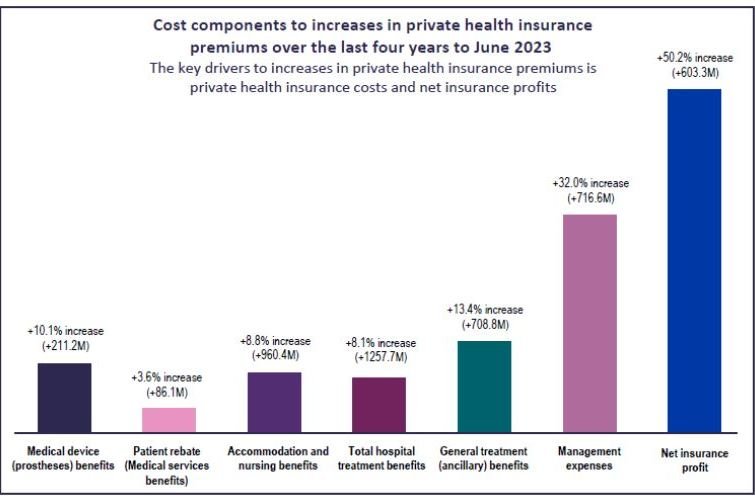Private health insurance premiums need to be within reach of average Australians in order for the nation to avoid a two-class health system, AMA President Dr Tony Bartone has said.
Speaking as part of a televised panel discussion at the National Press Club, Dr Bartone said Australia’s doctors stood ready for a constrictive conversation with all stakeholders about the best way forward on private health.
“It will be hard. We will all have to give ground,” he said.
“We can and must fix the system. Because at the end of the day, if we don’t, it’s your customers, my patients, and our citizens who stand to lose the most.
Joining Dr Bartone on the lively panel were the CEO of Private Healthcare Australia Dr Rachel David, and Director of the Grattan Institute’s Health Program Dr Stephen Duckett.
In one of numerous points of disagreement, Dr Duckett suggested the Government should get out of the way of private health insurance and let the industry “fix its own problems”.
But Dr Bartone said the Government was crucial to addressing the issue properly.
“The Government is pivotal in the health insurance equation. They are behind so many of the policy levers,” Dr Bartone said.
“They have adjusted these over the last decade to reduce their costs – either through effective means testing of the health insurance rebate, or freezing the MBS year after year.
“They have been very successful in doing this, but those costs were not removed. They have stayed in the system and they have been passed on.”
Dr Bartone said the AMA supported the Government looking at how to restore the insurance premium rebate – especially for younger Australians and lower income earners – to the point where cover can be maintained.
Other AMA recommendations included a minimum amount returned to the health consumer for every dollar going in; a review of the Life Health Cover loading; enhanced youth discounts; alternative clinician-led models of care; and more transparency through informed financial consent.
“As the only practising GP here on stage – one who continually refers patients to public hospitals – I can tell you that I see enormous value in our private health system,” Dr Bartone said.
“Yes, our public hospitals are, no doubt, some of the best in the world. My colleagues – the doctors, nurses, and other staff in the hospital system do a simply amazing job.
“But they are fighting a losing battle when it comes to waiting lists and resources.
“Our AMA Public Hospital Report card shows that wait times last year are worse than they were the year before and the year before that.
“We need our private health system. It plays a vital role in providing Australians the excellence in our health system that we are renowned for worldwide.”
Dr Bartone said that without the private system, public hospitals would grind to a halt. Increased premiums, however, are meaning private health insurance is getting further out of reach.
“Taxpayers will ask how much more of their money should go to a private health insurance system, operated by private sector organisations, who have a responsibility – which they uphold quite well, I might add – to bank a profit,” he said.
“I have no issues with private sector organisations making a profit. But at something like $6 billion dollars a year in PHI premium rebates, a potential $3 billion – according to Grattan figures – of MBS payments, and two Federal Government financial penalty policies, namely the Life Time Health Cover loading and the Medicare Surcharge levy, forcing people to buy the product, health insurance is not exactly a free market.
“There’s a strong, and visible hand, pushing customers towards it. If more public money is to go to the private health system, Australians will want to see all parties in the system work to get value from it.
“From an AMA perspective, we will want to continue to see clinical independence preserved on behalf of our patients.”
Dr David said there was no alternative option than to make the system we have work.
“Private health is enshrined in Medicare. This is the same health system and they cannot be separated,” she said.
“But private health is the canary in the coal mine.”
Dr Duckett said doctors and insurers had the responsibility to fix private health insurance.








